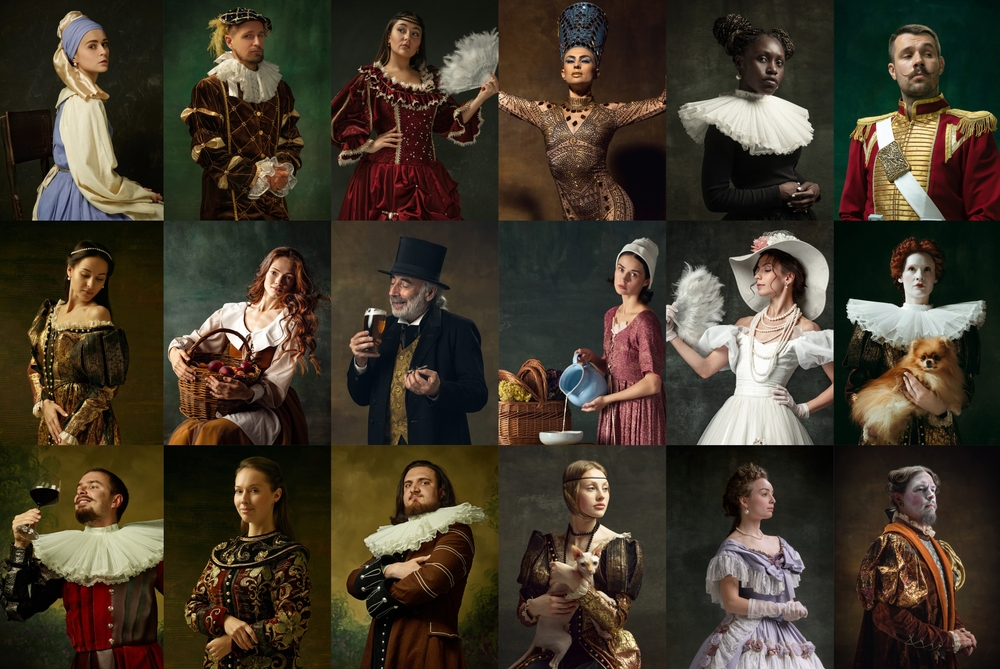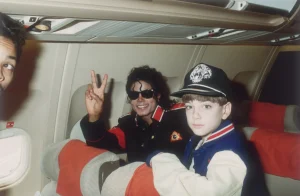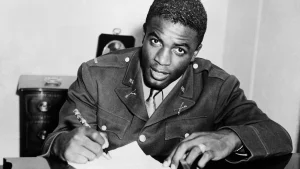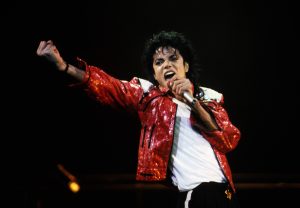Dinner with History’s Most Famous Figures: A Fantastical Feast of Minds and Moments
Imagine a world where history's most famous figures could dine together, where their vast legacies and philosophies converge in one shared moment. A meal that transcends time and brings together some of the most influential individuals the world has ever known. From the spiritual teachings of religious leaders to the scientific discoveries of visionaries, from the cultural brilliance of artists to the political ideologies that shaped nations—this is the fantasy dinner party that would set the stage for a riveting and, at times, contentious conversation. What would it be like to sit at a table with Jesus Christ, Muhammad, Albert Einstein, Mahatma Gandhi, William Shakespeare, Adolf Hitler, Queen Elizabeth II, and Michael Jackson?
As unlikely as this gathering seems, the very thought evokes a sense of intrigue and wonder. What could such a conversation yield? How would their diverse backgrounds and beliefs interact in a shared space? How would they grapple with one another’s ideas, philosophies, and actions? The dinner table would surely be a battlefield of ideologies, a stage for the exploration of moral conflicts, political divisions, artistic brilliance, and scientific marvels.
Setting the Scene: A Gathering of Legends
The dinner takes place in an opulent room, perhaps a large Victorian dining hall, its walls adorned with portraits of the world's great thinkers and political leaders. There is a long, gleaming oak table, its surface polished to a sheen, reflecting the flicker of candlelight from antique brass candelabras. The scent of roasted meats, freshly baked bread, and exotic spices fills the air. The atmosphere is charged with anticipation, as the guests take their seats.
Each person brings with them their distinct tastes and preferences, reflective of their respective eras, cultures, and personal philosophies. The food is lavish but thoughtfully curated, drawing from the varied backgrounds of the guests. Perhaps there are dishes to please the regal tastes of Queen Elizabeth II—roast venison, Yorkshire pudding, and fine English wines. For Gandhi, a vegetarian spread would be prepared, focusing on simple yet flavourful Indian dishes like dal, chapati, and sabzi. Einstein, a lover of simplicity, might request a hearty German dish like Sauerbraten or some Swiss cheese. Shakespeare, ever the lover of excess, might demand a grand display of meat pies and roasted fowl.
The table is set with the finest porcelain, and a waitstaff discreetly attends to the guests’ needs. The atmosphere is thick with history, as the very presence of these figures serves as a reminder of their lasting impact on the world. The conversation begins to flow, starting with small talk, but it quickly spirals into a fascinating exploration of the human condition, power, science, and philosophy.
The Guests Arrive: The Conversation Begins
Jesus Christ takes his seat at the head of the table, his presence calm and serene. His eyes exude warmth, and he speaks with a gentle authority that demands respect. As the central figure of Christianity, his influence has spanned millennia, and his message of love, forgiveness, and redemption resonates with billions. He would likely begin the conversation by speaking about the importance of love as the guiding force in human existence. He might ask the others, "What is it that guides your actions—love for others, for yourself, or for a higher cause?"
Muhammad, the founder of Islam, occupies a place of reverence in the room. Though the other guests come from different faiths or worldviews, Muhammad’s teachings on submission to God, the unity of the community, and justice would spark a meaningful exchange with Jesus. Both leaders would speak of the importance of faith and compassion, though they might highlight different approaches. Muhammad would likely emphasise the submission to the will of God, while Jesus would stress the power of love to heal and transform.
Across the table, Albert Einstein, one of the greatest scientific minds in history, listens intently. Known for his work on the theory of relativity, Einstein’s contribution to the understanding of the universe revolutionised science. He would probably speak of the universe as a complex yet beautiful system governed by laws that are yet to be fully understood. He might share his reflections on the interconnectedness of all things in the natural world, and how science could help humanity transcend the limitations of conflict and ignorance.
Seated next to Einstein is Mahatma Gandhi, the leader of India's non-violent independence movement. Gandhi would challenge the notion that science alone could resolve the world’s problems, arguing instead for a return to spiritual values and simplicity. He might bring the conversation to a more grounded place, asking, "How can we reconcile our great advancements in science with our moral responsibilities to one another and the world?" Gandhi’s focus on non-violence and self-discipline would serve as a counterpoint to Einstein's intellectualism, but they would find common ground in their shared desire to see humanity move towards peace and understanding.
As the conversation unfolds, William Shakespeare, the immortal playwright and poet, would offer his own observations. With a wry smile, he would quote from his plays, drawing attention to the complexities of human nature. His insights on ambition, power, love, and betrayal would likely provide a reflective moment in the discussion. Perhaps he would quote Hamlet, saying, "Frailty, thy name is woman," only to turn the phrase on its head with a more profound understanding of human imperfection. Shakespeare would bring a sense of humour and wit, using his words to soften the more serious exchanges and remind the others of the paradoxes that define human existence.
The mood would shift as Adolf Hitler enters the conversation. Known for his role as the architect of Nazi Germany and the instigator of World War II, Hitler's presence would undoubtedly cause a stir. His extreme views on race and power would be met with shock and outrage, particularly from Einstein, who fled Nazi persecution, and Gandhi, whose philosophy of non-violence stood in stark contrast to Hitler’s violent ideology. The tension in the room would be palpable, as Einstein might challenge Hitler’s views directly, reminding him of the destructive consequences of such hatred. Gandhi, ever calm, might speak softly, asking, "What drives a man to such depths of cruelty?"
At the far end of the table, Queen Elizabeth II would likely maintain her diplomatic composure, attempting to navigate the conversation with grace. As a monarch who has witnessed profound global change during her reign, Elizabeth’s perspective on leadership would be invaluable. She might offer observations on power and responsibility, speaking of her role in navigating the complex political landscapes of the modern world. She would likely comment on the delicate balance between tradition and progress, recognising the importance of both stability and reform.
Finally, the conversation would turn to Michael Jackson, the King of Pop, whose cultural influence transcended music and dance. Jackson’s presence would offer a moment of lightness amidst the heavy philosophical and political discussions. His love for music as a unifier of people would bring an optimistic tone to the gathering. "We are all part of the same rhythm," he might say, emphasising that music has the power to heal divisions and create empathy between even the most disparate groups.
The Conflict: Ideologies in Collision
As the dinner progresses, the tension becomes more pronounced. Hitler’s racist and nationalistic views would clash violently with the principles of equality and unity espoused by Gandhi and Muhammad. Einstein, as a Jew, would not stand for any justification of Nazi ideology, while Shakespeare would likely have no tolerance for Hitler’s authoritarian views. The room would become divided, with the guests sharply opposing each other, particularly when it comes to the idea of power. Hitler might advocate for the supremacy of one race over others, while Gandhi would counter with his belief in the equality of all people. Elizabeth, who has ruled through centuries of political conflict, might try to mediate, but the lines between right and wrong would be glaringly obvious.
In the face of such hostility, Jesus and Muhammad would remain the calmest, focused on their shared messages of compassion and unity. However, their presence would not soften the deep ideological rifts that run through the table.
The Unexpected Moments of Connection
Despite the tensions, there would be unexpected moments of connection. Einstein and Gandhi might find common ground in their mutual desire to use their respective disciplines—science and non-violence—to help the world. Shakespeare and Einstein might discuss the role of imagination in science and art, while Muhammad and Jesus might find commonalities in their beliefs about the importance of justice and community.
Michael Jackson, ever the optimist, would likely shift the conversation to the healing power of music. He might perform a brief impromptu dance, lightening the mood, and reminding the room that, despite the conflicts and tragedies of history, humanity has the capacity to create beauty, joy, and unity.
The Legacy of the Meal: Reflections on Humanity’s Complex Journey
As the meal draws to a close, the guests would likely reflect on the depth of the conversation and the complexity of human history. Each guest, despite their differences, would have left a lasting imprint on the dialogue. The evening would stand as a microcosm of the larger world—a place where ideas collide, where there is room for both progress and tragedy, and where the search for truth is an ongoing endeavour.
In the end, the dinner would not offer easy answers, but it would illuminate the vast spectrum of human experience. It would be a reminder that, while our ideologies may divide us, the shared quest for meaning, understanding, and connection unites us all. As the guests stand to leave, they might exchange knowing glances, each contemplating the profound insights gained from this historic gathering.





















